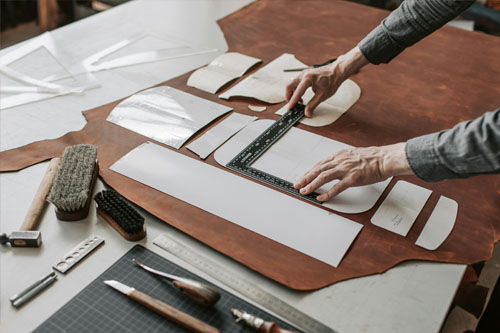Sustaining Expertise: The Learning Factories Project and the Future of Portugal's Leather Goods Sector
Hundreds of workers are employed in the Portuguese leather goods sector, using their hands daily to design, cut, stitch, assemble, and deliver products that can last a lifetime and reach over 50 different countries annually. Along with these products comes the “Made in Portugal” label, as well as a tradition that reflects innovation, quality, and design.
The know-how accumulated over generations, along with a recurrent focus on professional qualification, appears to be a key competitive advantage of this sector, which exported €310 million in 2023. It is, therefore, essential that this expertise is improved and preserved.
Giving companies more prominence and allowing them to organise and shape the training that benefits them is the foundation of the European training project Learning Factories, co-financed under the Erasmus+ programme. The project follows on from LEIA, also co-financed by the Erasmus+ programme, which was one of the three best projects awarded in 2024 by the Erasmus+ National Agency. Learning Factories is led by the Portuguese leather goods company Belcinto (Vasconcelos e Ca. Lda.), headquartered in S. João da Madeira, with support from the Portuguese Footwear Technological Centre.
This type of initiative aligns with the Strategic Plan of the Footwear Cluster 2030, which was recently presented. Under Axis 1, "Qualification of People," it is stated that “the empowerment of the cluster’s human resources cannot occur without the involvement of the companies. It is important that the training activities to be developed meet their needs, which requires, at the very least, their careful consultation. In some cases, which are to be encouraged, companies are able to take responsibility for organising their own training activities internally, becoming true learning factories.

